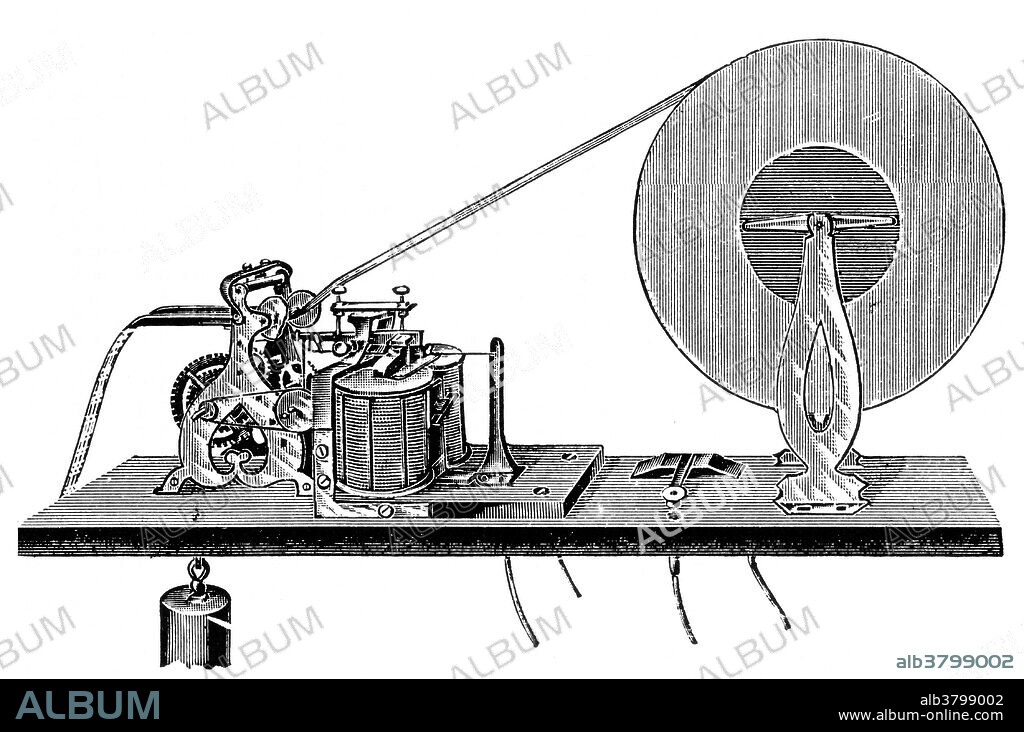alb3799002
Samuel Morse, Morse Code Receiver, 1840s

|
Zu einem anderen Lightbox hinzufügen |
|
Zu einem anderen Lightbox hinzufügen |



Haben Sie bereits ein Konto? Anmelden
Sie haben kein Konto? Registrieren
Dieses Bild kaufen
Titel:
Samuel Morse, Morse Code Receiver, 1840s
Untertitel:
Siehe automatische Übersetzung
An electrical telegraph was independently developed and patented in the United States in 1837 by Samuel Morse. His assistant, Alfred Vail, developed the Morse code signaling alphabet with Morse. This device for printing telegraph messages was invented in the 1840s. When a message was to be received, the weight was released turning the mechanism and feeding a strip of paper from a reel. Electrical telegraph signals coming in from wires energized electromagnets, which pulled down the iron or steel plate above them. By means of a pivoted lever, this raised the print head which placed indentations in the paper strip which could be read. Morse devised a code which represented each alphabetical letter by a series of short dots and long dashes.
Persönlichkeiten:
Bildnachweis:
Album / NYPL/Science Source
Freigaben (Releases):
Model: Nein - Eigentum: Nein
Rechtefragen?
Rechtefragen?
Bildgröße:
4500 x 2985 px | 38.4 MB
Druckgröße:
38.1 x 25.3 cm | 15.0 x 9.9 in (300 dpi)
Schlüsselwörter:
 Pinterest
Pinterest Twitter
Twitter Facebook
Facebook Link kopieren
Link kopieren Email
Email
